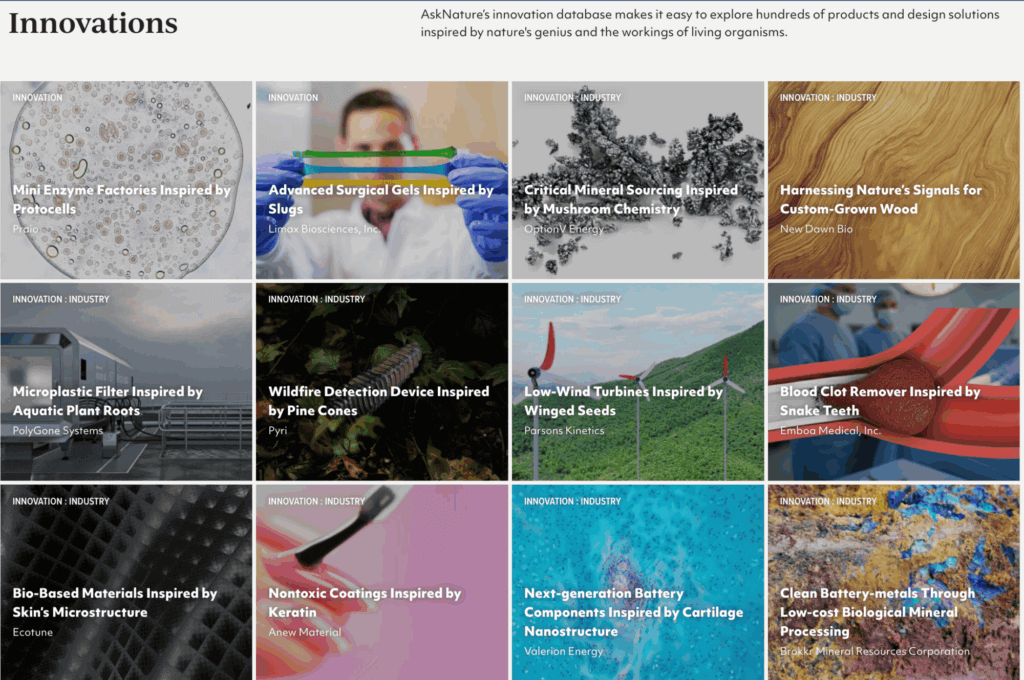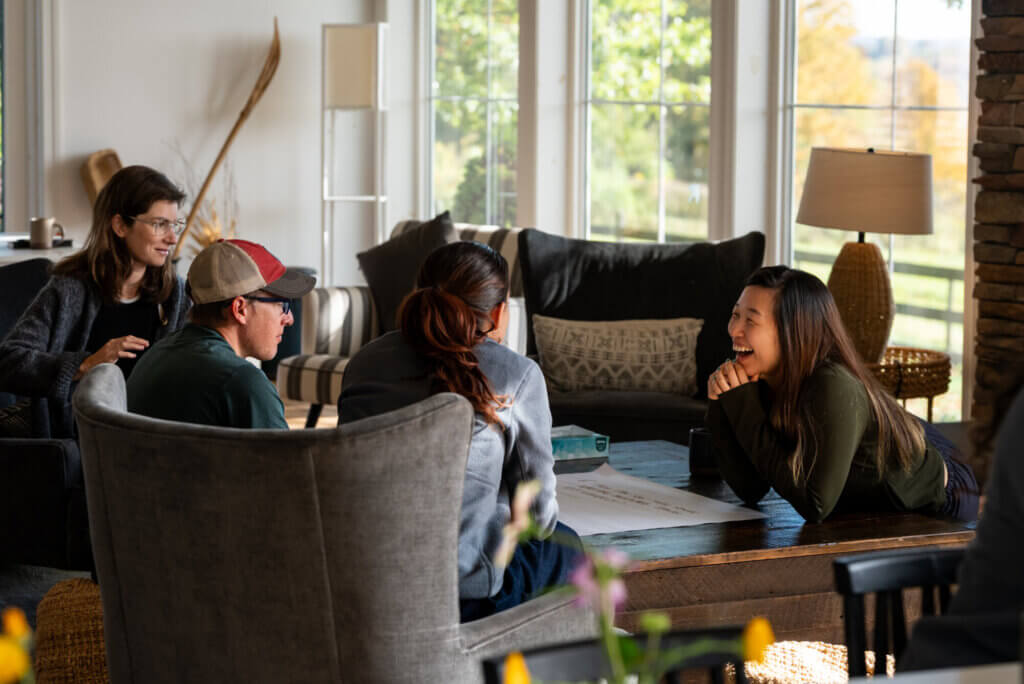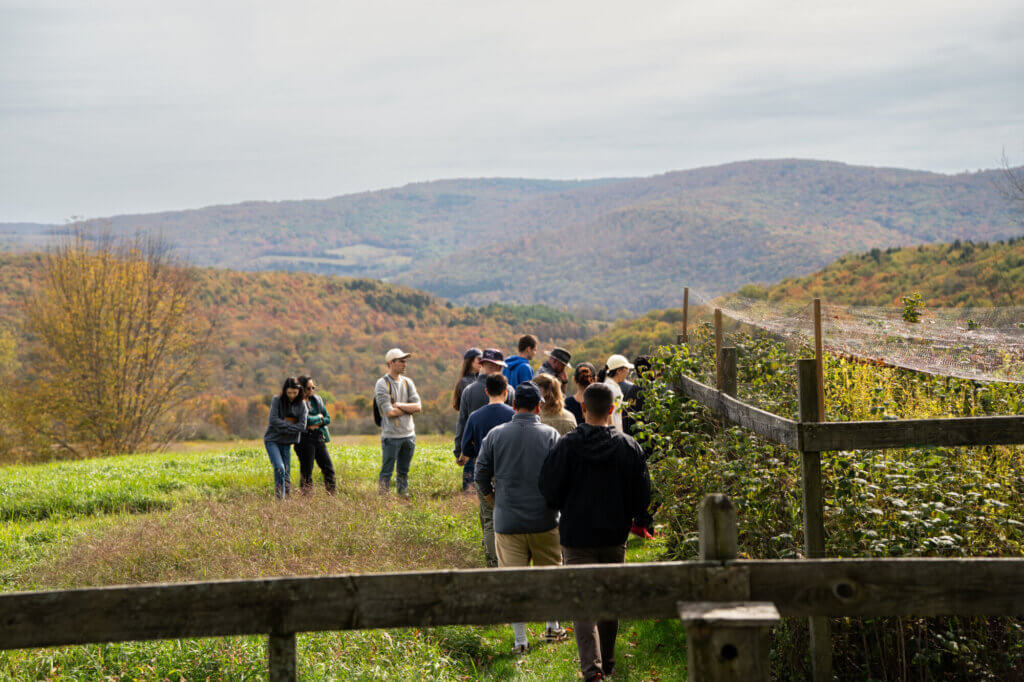Intentionality breathes life into our Ray of Hope Accelerator’s mission and into our operations.
Our mission is to accelerate the growth of nature-inspired startups to scale systemic solutions to the world’s most pressing environmental challenges. From scouting to selection, every step of our cycle reflects our commitment to meaningful and lasting change. In a landscape where 90% of startups fail within their first few years, the selection process becomes critical. As we kicked-off the 5th edition, we are looking back at how intentionality paid off with our portfolio having raised over $125M, currently building production facilities (Seprify) and partnering with companies like BASF (Cypris Materials) and Tarkett (Mycocycle) to grow at scale. Five years on, 97% of our portfolio companies are still in operation; testament to the power of intentional selection and support.
How do we, as an accelerator in the sustainability and climate tech space, assess applications and select startups for investment? Factors influencing the decision making process all converge at that one critical element: intentionality.
Our Unique Thesis: Nature-Inspired Innovation.
In alignment with the Biomimicry Institute’s mission, we crafted a unique thesis and focus on nature-inspired innovation, not just any startup. We seek out those that learn from and mimic biological strategies that have evolved over 3.8 billion years of evolution to provide alternatives to extractive practices and create scalable solutions to environmental problems. This focus helps us select startups globally that align with our mission and can make a real difference. This year, we’re excited to be working again with cellulose-based solutions, the most abundant biopolymer on Earth – Cellulotech Inc. (Canada) and Fiberly (France/Argentina), green chemistry solutions – Gel Matter Co. (USA) and Soarce Inc. (USA), an ocean tech startup – ReefCycle LLC (USA), a medtech company exploring conservation opportunities – SanaHeal (USA), and a biosensor tech for the ag and food industry – Scentian Bio Limited (New Zealand). For the first time, in alignment with the current challenges of our times, we also welcome a sustainable mining innovation with Brokkr Mineral Resources Corporation (Canada) and two next generation battery and energy storage solutions with AZUL Energy Inc (Japan) and Tuebor Energy (USA)! We’re excited to share more about their nature-inspiration and impact potential in the coming months.

Our Approach to Reviewing Early-Stage Startup Applications is Rooted in Intentionality.
The hardtech and deep tech startups that we select have achieved TRL 4 or 5, meaning the technology has begun to be validated. However, these companies take significantly longer to grow compared to software, and have a far greater potential for long-term impact. We champion startups with platform technologies, understanding their crucial role in enabling scalable growth. Our approach isn’t about quick wins but fostering meaningful, lasting change.
In selecting startups for our accelerator—and in choosing investments—it’s a mutual process: startups choose the program, and the program chooses the startups. We look for startups with well-crafted applications and clear problem definitions. Founders should be in love with the problem. We focus on the people as much as the solution, because a dedicated and adaptable team is set to drive impactful innovation. Additionally, they need to have a deep understanding of nature-inspired innovation, which often (but not always) means they originate in the biological sciences. Each application is reviewed for its problem and market potential, solution and technology, nature-inspiration, environmental and social potential impact, as well as the alignment with our mission, and unintended consequences, whether highlighted by the applicants or not. During the selection process, each of the top 30 startups goes through an interview and our Selection Committee helps us come up with 360 views on the startups. On that note, we don’t take applications for granted. We make the commitment to share Selection Committee feedback with the top 30 startups to support them as startup leaders and to build reciprocity. Oftentimes, we make introductions between Selection Committee members or our corporate partners and startups that made it to the top 30 but that are not selected for the upcoming cohort.
“There is so much potential and power in bringing together diverse voices and perspectives to identify and lift up the next generation of nature-inspired startups and technologies, and it’s so clear that Nature wouldn’t have it any other way. In this period of complex challenges affecting regions and cultures around the globe, we can no longer afford to chart a path forward with so many blind spots.” – Daniel Kinzer, Founder, Activist, National Geographic Fellow, Biomimicry Institute Board Member and 2024 Selection Committee member
Diversity is Key, especially in forming our Selection Committee.
We recognize that the challenges in selecting impactful startups and supporting underrepresented founders are not just about building the best pipeline but also about overcoming intrinsic biases and knowledge gaps. By purposefully expanding our networks and broadening our selection perspectives, we are actively seeking to foster a more inclusive entrepreneurial ecosystem. In 2024, the Biomimicry Institute team responsible for vetting and selecting the startups includes two men and two women, with backgrounds in Biology, Chemistry, Environmental Sciences and Engineering, along with entrepreneurial experience.
To supplement our internal team, we build a robust external Selection Committee that shines a light on diverse technologies and industries. The Selection Committee itself is an intentionally diverse group of 24 members—equally composed of 12 men and 12 women, which we believe contributes to the fact that 35% of our portfolio are women-led ventures, as opposed to the traditional female founder ratio of 13-15%. This committee included experienced investors (At One Ventures), industry leaders (L’Oreal), renowned academics (University of Cambridge), and sustainability experts (Trellis Group), from a variety of cultural backgrounds and with insights in a dozen industries.
“As a woman hailing from academia, my own experiences inform how I ‘show up’. I believe it is fundamentally important to assess companies on merit, but to get to the bottom of that includes understanding an entrepreneurs’ own story – and how that story contributes to shaping early-stage opportunities with high potential for success. Actively taking the time to listen, learn and employ empathy has (in my experience) naturally lent towards promoting inclusive environments and that is what I was honored to offer to this year’s Selection Committee.” Jillian Chase, Ph.D. – Principal at Azolla Ventures, 2024 Selection Committee member
This proactive diversity is intended to naturally address some of our internal biases and helps us at the accelerator to make better decisions which ultimately leads to a more resilient startup community.
Intention Feeds Intention. Of course, the intentionality carries beyond the recruitment phase; it permeates our program, our community and contributes to long-term impact.
In addition to a sustained six-months curriculum (running from September to February), we tailor resources and mentorship to meet the specific needs of each startup, particularly those led by underrepresented founders. This intentional approach fosters a deeper sense of community, and we’re excited to continue creating an environment where startups can thrive together, learning from and supporting one another. We don’t want our portfolio companies to just survive, we want them to lead the way in creating a better, Nature Positive world.
Maëlys Renaud,
Ray of Hope Accelerator Program Lead




